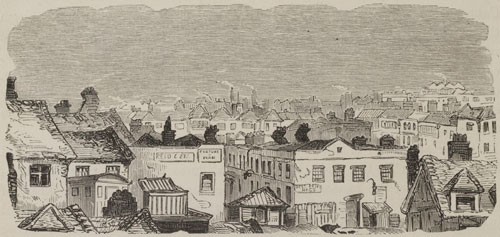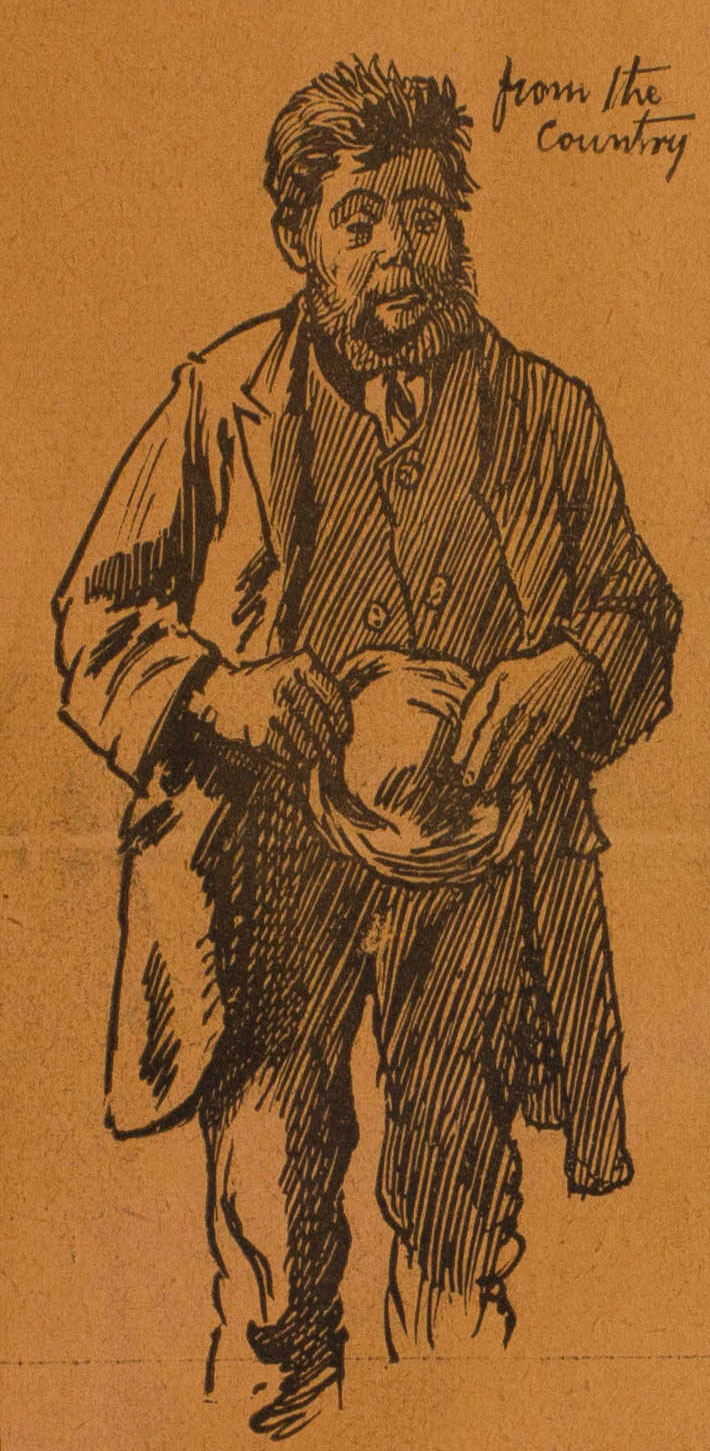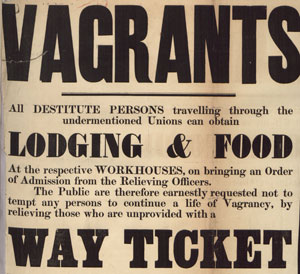Nature and Scope
Overview
This multi-archive collection, comprising collections from The National Archives at Kew, the British Library and Senate House Library navigates the complex social climate of nineteenth and early twentieth-century Britain between the introduction of the New Poor Law in 1834 and the eventual abolition of the workhouse system in 1930._edited-1.jpg)
Poverty, Philanthropy and Social Conditions in Victorian Britain introduces users to the interactions between government policy and public philanthropy in Victorian and early twentieth-century society, demonstrating a shift in welfare reform and the social tensions surrounding poverty and public welfare. Discover the conditions of workhouses and the administration of the new poor relief system through the official government correspondence of the Poor Law Office, documenting conditions and providing reports of healthcare, diet, sanitation and employment within the institutions. Aimed at regulating relief to the underprivileged, the workhouse system faced many challenges including workhouse scandals which resulted in their infamous reputations.
As these state efforts to regulate and manage the poor increased with the introduction of a workhouse system, philanthropic initiatives which aimed to educate and empower recipients of relief swiftly emerged. Users can research social reform movements in the period through contemporary pamphlets, newsletters and periodicals published by settlement houses across the country, as they ventured to alleviate poverty across the nation through integration of the rich and poor in society. The collection also includes pamphlets and public notices which contextualise societal concerns regarding welfare and reform from the Family Welfare Association Library, exploring broad topics relating to social conditions and policy.
With essays and case studies from academics and specialists, the resource provides insightful approaches to the complex social climate during the period, focusing on a breadth of topics including workhouses and outdoor relief, health and medicine, disability, housing, sanitation and education.
Key Themes and Topics

- The Poor Laws, Workhouses and Outdoor Relief
- Sanitation, Slums and Housing
- Charitable Institutions and Friendly Societies
- Manufacturing, Technology and Trade
- Social Reform and Welfare
- Education and Children
- Race and Immigration
- Health, Medicine and Disability
- Social Order and Discipline
- Socialism and Political Movements
Key Archival Collections
The National Archives, UK
The correspondence of the Poor Law Commission, Poor Law Board and Local Government Board from The National Archives at Kew shows the government systemisation and administration of the New Poor Law across the UK between 1834-1904. The material also contains volumes of correspondence on special subjects, including circulars of the Board, reports of inspectors on the conditions and classification of workhouses, and medical reports.
The following collections have been included in this resource:
- MH 32 Local Government Board and predecessors: Assistant Poor Law Commissioners and Inspectors, Correspondence, 1834-1904. These volumes are predominantly organised by name of Poor Law Inspector.
- MH 33 Poor Law Commission: Assistant Poor Law Commissioners, Registers of Correspondence, 1834-1846. These Registers have been included to help facilitate navigation of the MH 32 material. Where applicable, the Registers have been linked with their corresponding MH 32 volume (and vice versa) at metadata level.
These administrative documents give a unique insight into how the Poor Laws and workhouses functioned at national level, exploring the conditions for inmates and the role of the organisational body which governed the New Poor Law. These documents have Handwritten Text Recognition (HTR) technology applied to them, allowing document level full-text searching with results highlighted within the handwritten documents. Click here for more information on HTR technology.

The British Library
Settlement House periodicals and reports from the British Library demonstrate philanthropic efforts to improve the welfare and education of the poor, showcasing events held within the institutions and experiences of those associated with the houses. These documents illustrate the workings of the reformist University Settlement Movement, documenting their goals to provide an interdependent community where the rich and poor in society could work more closely together.
Senate House Library, UK
The Family Welfare Association Library material housed at Senate House Library provides an insight into various topics of contemporary welfare and social considerations during the period. The Family Welfare Association was founded in 1869 as the Charity Organisation Society (COS) by Octavia Hill, Helen Bosanquet, William Gladstone and John Ruskin. It became the pre-eminent Victorian philanthropic organisation addressing the needs of the poor, with the aim of increasing effectiveness amongst charities. The COS documented its own work, as well as collecting pamphlets, leaflets, reports, books and periodicals relating to poverty, welfare and social reform. The charity still exists today in its current form as Family Action.
This resource includes a wide selection of the Family Welfare Association Library’s pamphlets, reports, articles, periodicals and printed books, covering topics such as education, foster care, cooperative societies, trade unions, prison reform, housing, sanitation, public health, disability, and the Poor Laws in the nineteenth and early twentieth-century.
The Family Welfare Association library was gifted to Senate House Library, University of London by the charity as it operates today: Family Action (www.family-action.org.uk). The Library and publisher are grateful to Family Action for their donation of the material, and for this opportunity to take the story of their pioneering charitable work to a global audience of researchers.

Additional Features
- Use the interactive chronology to discover more about events surrounding the New Poor Law, social welfare and government legislation during the period.
- Read contextual essays on a variety of key themes, written by academic experts and historians.
- Begin your research by reading our case studies on a range of topics and taking a look at related documents.
- Watch a video interview from historian, Peter Higginbotham, and learn about the workhouse system and challenges associated with researching the institutions.
Language and Terminology
All editorial decisions relating to this project have been made with great care, consideration and with the utmost sensitivity.
Every care and attention has been paid to preserve the historic authenticity of these documents. Any terminology that may be deemed discriminatory or offensive by present-day principles may have been preserved for the historic accuracy and relevance to that particular document.


